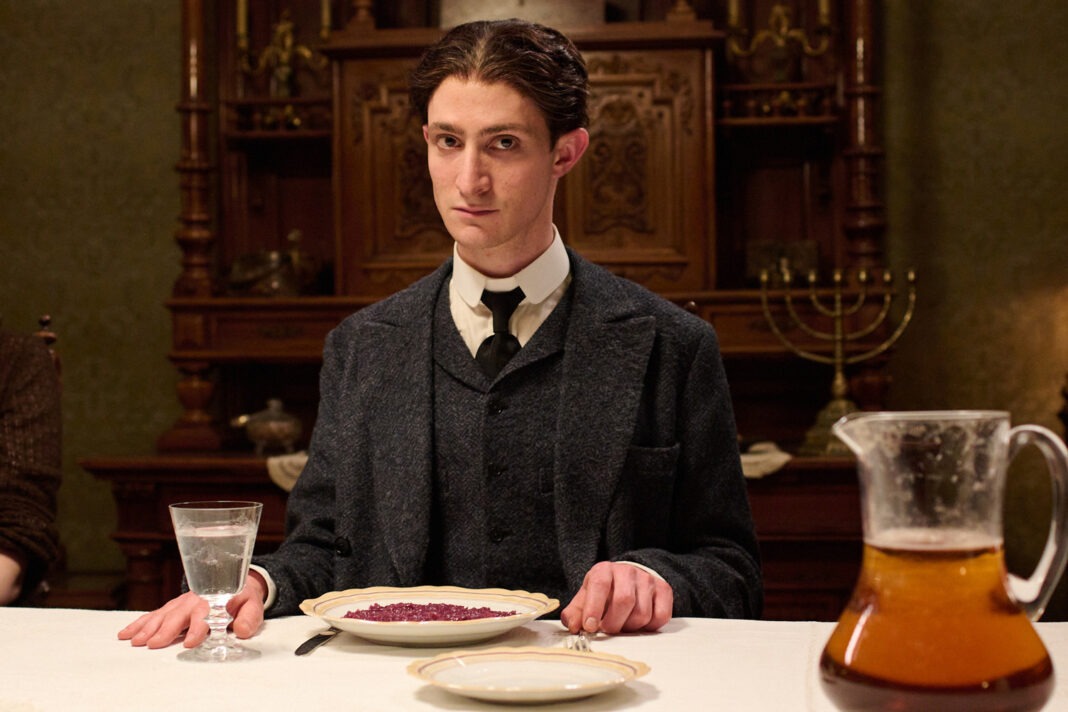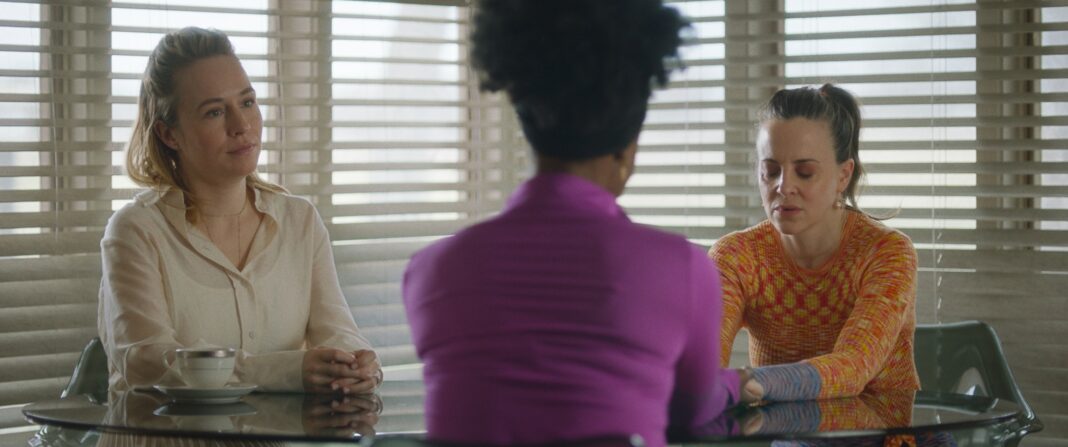A figure like Franz Kafka has achieved worldwide fame in the century since his death, but, as with so many other prolific writers from history, it should come as no surprise that he was not properly appreciated in his time. For an unconventional film about his objectively very interesting and startlingly brief life that doesn’t adhere to traditional narrative styles, filmmaker Agnieszka Holland chooses a title that references only his first name, exploring the person audiences may not know as he tried to share his intellectual brilliance with a world that often wasn’t interested in hearing it.
Franz (Idan Weiss) grows up in a crowded house with a stern father (Peter Kurtz) who is determined to have his son support the family business. Franz is closest to his sister Ottla (Katarina Stark), who wants to see him succeed and be happy. Disillusioned with the insurance world which he’s meant to enter, Franz spends a great deal of his time writing, penning both deep, insightful, and occasionally quite disturbing stories and letters to the people in his life. When he meets Felice (Carol Schuler), he begins corresponding with her, but somehow the allure of a relationship from afar can’t be matched by the idea of actually having to spend his life with someone else.
Holland is a celebrated filmmaker known for the Oscar-nominated films Europa Europa, Angry Harvest, and In Darkness. Her latest project is another period piece set in proximity to the Holocaust, but it’s also considerably more playful at times. Characters turn to look at the camera and provide a pensive narration, reflecting on the time that they spent with Franz or conveying some information that they shouldn’t themselves know but will prove informative to audiences. It’s a strange device that’s used sporadically and randomly throughout the film, mostly without warning, adding a bit of wholly unexpected spunk and flavor to a saga that, thanks to Franz’s antisocial tendencies, might otherwise feel inaccessible.
Though it runs just over two hours, this film feels long, and that may be because it isn’t presented strictly in narrative sequence. There are moments in which an audio prompt is suddenly heard offering different languages to hear a message about a Kafka museum, and tours being facilitated are also shown. The insertion of these present-day scenes into the story of Kafka’s life feels jarring since they come at unpredictable moments, and almost seem to suggest that there’s so much more this film doesn’t have time to cover and therefore this brief representation of the scope of his life is better communicated through a look at his posthumous legacy. It’s a creative device, to be sure, but not one that lands in the way it appears to have been intended.
This marks the first feature film for Weiss, who portrays Franz as a reserved thinker who demonstrates his curiosity typically with a mixture of annoyance and wonder, alienating those who can’t see how he experiences the world. The strongest performances comes from the actresses playing the women in his orbit, including Stark, Schuler, and Jenovéfa Boková as translator Milena Jesenská. Kurtz is also deep-voiced and frightening as the kind of father who tosses his young son into the water with no support to force him to make him proud and learn how to swim without any safety or training measures to let him off the hook.
Franz is ultimately quite informative and thought-provoking, and equally depressing. As the film approaches its close, it offers a coda of sorts for each of its supporting players, most of whom were murdered in the Holocaust. Though Franz’s relationship with Judaism wasn’t always warm, his religion, culture, and historical language were indeed major influences, and there is something very tragic about knowing that much of his family and close circle also perished around the same time he died of illness. This film hints at so many more questions it isn’t able to answer, focusing much more on the man than his ideas and the work he left behind. As presented in this somewhat lighthearted and offbeat way, it proves only partially satisfying since it doesn’t really get to the heart of his own metamorphosis and how he has impacted the literary world since his untimely death.
Movie Rating: 6/10



